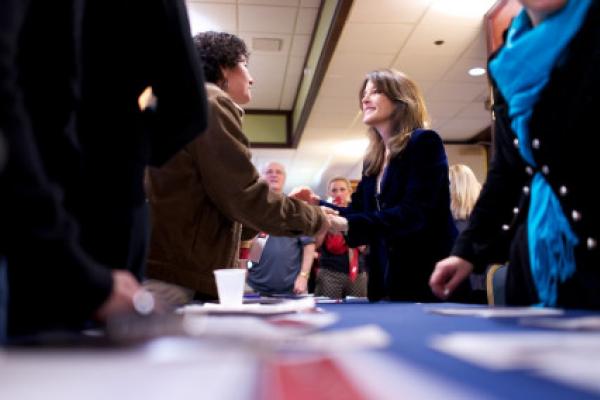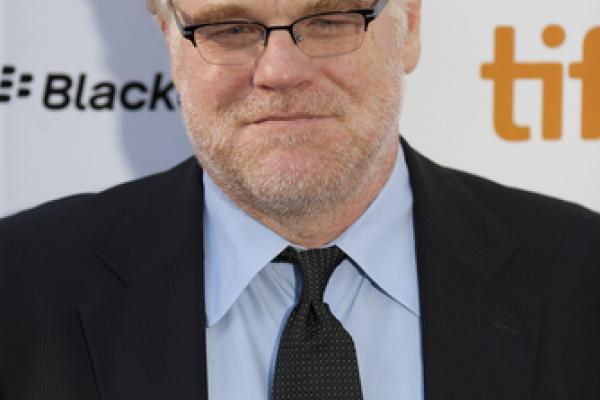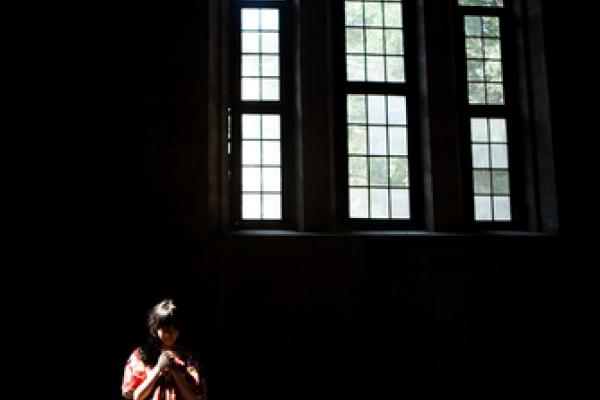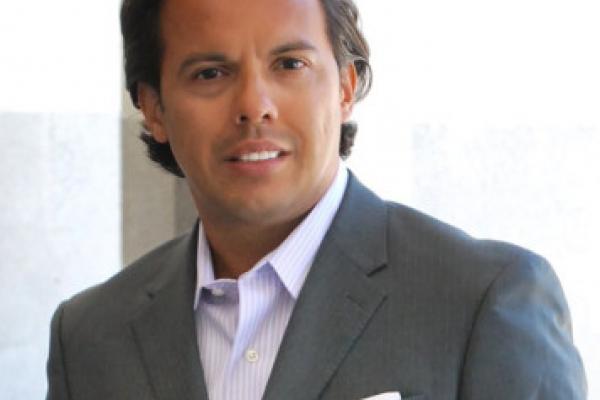It’s not a typical campaign for U.S. Congress, and that’s the point.
Best-selling author and spiritual lecturer Marianne Williamson closed out a campaign volunteer meeting Thursday, by beckoning the crowd of about 100 people to do what she does naturally — pray. Chatter ceased, heads bowed.
After praying for humanity and for the country, Williamson offered up, “May love prevail. And so it is.” The rapt audience replied in turn: “And so it is.”
I almost gave up on my drug-addict mother. But then I discovered that God never gives up.
In memory of Dorothy Molex (my mom), Philip Seymour Hoffman, and the countless others who battle the demons of addiction.
“What are you arguing with them about?” he asked. A man in the crowd answered, “Teacher, I brought you my son, who is possessed by a spirit that has robbed him of speech. Whenever it seizes him, it throws him to the ground. He foams at the mouth, gnashes his teeth and be- comes rigid. I asked your disciples to drive out the spirit, but they could not.” (Mark 9:16-18)
I never thought the Bible had anything to say about addiction. It’s not something that I ever heard preached or read in the Bible. As someone who grew up in a household with an addicted parent, I wanted answers, but church didn’t provide them and the Bible appeared to be silent — until I decided to read this story through the lens of my life and personal experiences.
Like everyone else, I’m addicted to the Twitter photos, Facebook posts, and litany of other social media feeds that are exposing Sochi’s unappealing shortcomings — but am I being fair?
It’s easy for me to forget that I live in one of the richest and privileged countries in the world, and although I consider myself a blue-collar employee working hard to make a living — I’m a citizen of one of the wealthiest and exclusive populations in existence.
I own a car (and a minivan), I have a house (with heating and central air), I buy a cup of coffee every morning, and spend lots of free time watching Netflix on my TV (a modest flat screen). These are just a few of the “normal” things that are luxuries I continually take for granted.
While much of humanity is engulfed in poverty, famine, war, and struggling to develop their society and better themselves — or just simply trying to survive — I’m complaining about the connection speed on my laptop (I may have to use my tablet instead).
Yes, the Olympics spent A LOT of money to create a party-like atmosphere filled with the comforts of Westernized society, but in many ways I’ve become a victim of my own comfort — accustomed to my ethnocentric American lifestyle.
I’m used to clean bathrooms, functional sewer systems, spectacular hotels, and glitzy restaurants — but much of the world isn’t. Whether we want to admit it or not, we live in a bubble detached from the reality of the rest of the world.
It’s easy to laugh at how others live, especially when we don’t have to face the same struggles. We assume our wealth and standard of living actually make us better — we become elitist and exhibit a superior sense of self-righteousness.
Maybe it’s fitting that I was scrolling through my Twitter feed when I came across this very clickable headline from the AP: “Go Figure: Facebook Read Daily More Than Bible.”
Ouch. That one hits pretty close to home. That aimless scrolling through my Twitter feed could just as easily have been time well spent in front of the Good Book. Has my daily devotion to social media really eclipsed my daily devotion to spiritual practice?
After 10 years of operation, Facebook has usage stats that put it in the stratosphere of dedicated readers. Just over half of adults in the U.S. and Canada use Facebook daily. The same cannot be said for the Bible or other religious texts. Really, it’s not even close.
The AP story notes that Facebook “says worldwide it has 757 million daily active users. Of those, 19 percent are in the U.S. and Canada, so that's more than 143 million people checking Facebook daily.”
Compare that to these numbers from the same article about those who read a religious text every day: “A 2006 CBS News poll found 15 percent of U.S. adults read the Bible or other religious texts daily. There are about 267 million adults in the U.S. and Canada. That means about 40 million people reading the Bible daily.”
In a country where 79 percent of adults claim some sort of religious affiliation, less than a quarter of that number statistically reads their religious text daily. Historically the term “People of the Book” has referred to the Jewish people and their reverence for the Torah, their holy law. Perhaps those of us in the U.S. should call ourselves “the people of Facebook.”
Bad religious puns aside, personally, I’ve never been one to read my Bible with much consistency, and certainly not on a daily basis. While I’ve tried my fair share of daily Bible reading programs, plans, and even Bible apps, I’ve yet to develop the habit of daily reading.
Sojourners is offering an important opportunity for Christian churches to examine their attitudes towards women. Following up on an article by Michelle A. Gonzalez entitled “Breaking the Habits of Machismo,” Gonzalez and Jim Wallis, president of Sojourners, will conduct a live video discussion on Wednesday, Feb. 12 to “discuss what the Bible really says to encourage, affirm, and empower women and girls in their call to be leaders.”
Judging from Gonzalez’s article, this conversation will focus on what it means to affirm that both men and women are created in God’s image. She begins her article with the Common English Bible translation of Genesis 1:27: “God created humanity in God’s own image, in the divine image God created them, male and female God created them.” Though she points to important changes taking place in Christianity today, Gonzalez traces the legacy of Christian thinking on womanhood that has elevated men and devalued women, instilling “habits of machismo” in our churches and our culture that are difficult to break.
But break them we must, Gonzalez argues, if we want to free both our theology and our practice from “male-oriented power structures.” Amen, sister. Because this is about more than equal employment opportunities for women in church administrative structures, of whether we are allowed to “preach, lead from the altar, celebrate communion, administer rites, pastor congregations, or teach.” What’s at stake in this conversation is whether Christians — and I think this is a call to American Christians in particular — whether American Christians are willing to dismantle a long-held justification for violence against women, not just in our country, but around the world. Gonzalez herself points out that patriarchal “attitudes can lead to greater violence against women, such as we see in the increasing exploitation and attacks on young women and how social media is used to perpetuate and document these horrific acts,” but this is her only nod to the issue of gender-based violence. Let’s add to the picture a look at the violence perpetrated by men against female bodies that has become to typify conflict zones around the world.
As investments go, this was a good one.
A Harley-Davidson motorcycle briefly owned by Pope Francis sold Thursday for $325,000, more than 25 times the Kelley Blue Book resale value for a similar bike.
Chalk it up to the so-called Francis Effect — credited for everything from increased church attendance in Italy to a surge of tourists arriving in Rome from the pope’s native Argentina. Now, evidently, it dramatically changes the value of objects the pope once owned.
Common Core, a set of educational standards that has faced criticism from religious groups, has found an ally in the largest organization of Hispanic Christians in the U.S.
The National Hispanic Christian Leadership Conference’s endorsement of the program Wednesday buoys the Common Core initiative, which has drawn criticism from conservative Christians who say it reflects liberal values.
Some prominent religious leaders, including former Arkansas Gov. Mike Huckabee, have expressed support for the program, but the conference’s endorsement marks the first time a large Christian group has embraced the initiative, adopted by all but five states.






